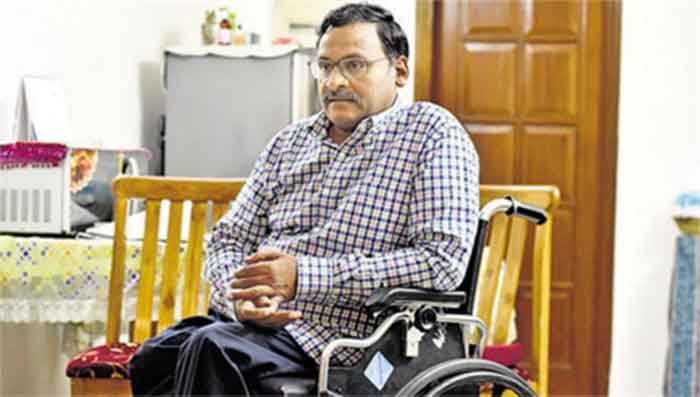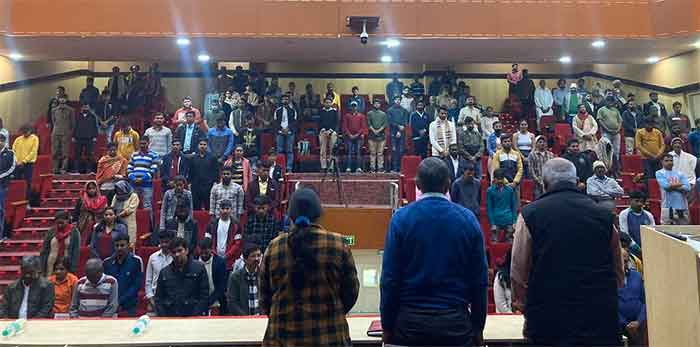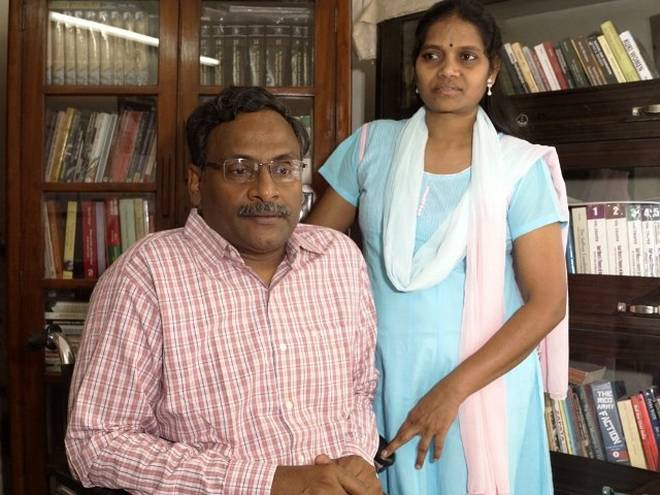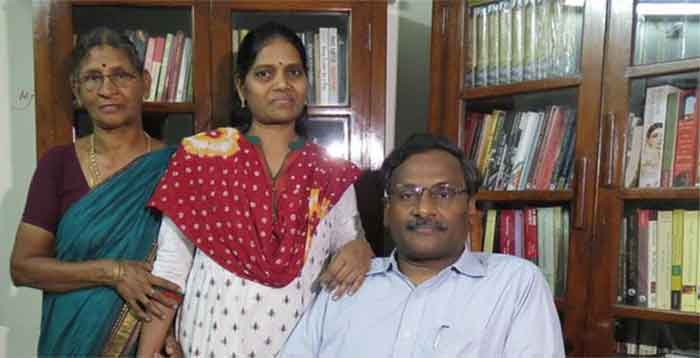
In recent days reports of hunger strikes by two political prisoners Sagar Gorkhe and G.N.Saibaba have deeply hurt the conscience of a nation preparing to celebrate its 75th independence day.
During the freedom movement several political prisoners had gone on very valiant hunger strikes taken up in very difficult conditions. These included such great freedom fighters as Bhagat Singh, Jatindranath Das ( who sacrificed his life in one such fast) and Batukeshwar Dutt.
These hunger strikes were taken up for improving the condition of political prisoners and respect for their basic rights as well as for wider reasons. The colonial government had its reasons to be very cruel to political prisoners. However it was certainly hoped that things will be different in independent India. The government should respect this expectation and its record with respect to political prisoners should be seen to be much, much better when compared to the colonial government.
In the case of 84 years old Fr. Stan Swamy, a Jesuit priest who had devoted his life to serving the poor and by all available indications had never indulged in any violence, all through the period of his deteriorating health in prison there were worldwide appeals for his release which were ignored, resulting in his extremely tragic death. This was very clearly an entirely avoidable tragedy.
In the case of G.N. Saibaba, an academic who had been teaching in a Delhi University college till he was arrested, he is reported to be 90 per cent disabled physically and has been lodged in an ‘anda’ cell ( egg-shaped cell) which is reported to be so designed as to increase visibility of prisoner but is particularly inconvenient for the movements of a person affected by high levels of disability. It is hardly surprising that the health of G.N. Saibaba has deteriorated further steadily since his imprisonment in such conditions. In addition a CCTV camera is widely reported to have been further placed in front of his cell, which was one of the reasons of his hunger strike. According to latest published reports at the time of writing, his hunger strike has now ended and hopefully some of the more disturbing problems have been resolved, but clearly he faced a lot of distress which could have been easily avoided by authorities by attending to basic rights and decencies of human life.
While colonial rulers were terrible and inflicted great cruelties, still it appears that political prisoners including freedom fighters then had some basic freedoms even within prison walls. Bhagat Singh and his comrades could have the opportunity of basic consultations among themselves to prepare some important statements and documents which are considered a great treasure by all scholars of the freedom movement and are read with great interest by youth keenly seeking guidance from these great freedom fighters. Ganesh Shankar Vidyarthi was able to translate the great works of Victor Hugo while in jail. Ram Prasad Bismil was able to write his autobiography in jail which is regarded as a very precious document even today. Of course Jawaharlal Nehru wrote his great books within prison walls which are still being read all over the world and are regarded as among the greatest books ever written in prisons.
Are such conditions available to political prisoners today? In fact the situation today is such that most political prisoners—those who are imprisoned not for common crimes of violence or fraud but for their dissenting political and socio-economic views and activities related to these—are not even classified as such.
In fact, as this writer has been arguing, there is a strong case for the release of all political prisoners as a part of the spirit in which the 75th anniversary of the freedom movement should be observed. However, if this is too much for the government to accept, the least that it can do—without further delay—is to appoint a review committee consisting of eminent jurists and others sympathetic to the cause of human rights to identify those like G.N.Saibaba who on health and humanitarian goods need to be released immediately and which can also ensure better facilities for other political prisoners.
Bharat Dogra is Honorary Convener, Campaign to Save Earth NOW. His recent books include Man over Machine—A Path to Peace, A Day in 2071, Planet in Peril and Protecting Earth for Children.













































